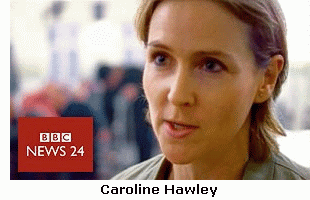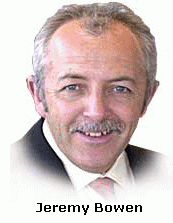 On 23 May, Israel captured its most wanted terrorist in the West Bank, Ibrahim Hamad a senior Hamas leader responsible for some of the most horrific suicide bombings of the past few years including:
On 23 May, Israel captured its most wanted terrorist in the West Bank, Ibrahim Hamad a senior Hamas leader responsible for some of the most horrific suicide bombings of the past few years including:
– a double suicide bombing and a simultaneous car bombing in Zion Square in the heart of Jerusalem five years ago, which killed 11 people;
– a March 2002 suicide bombing at Jerusalem’s Moment Cafe, in which 12 people were killed;
– the attack on the Shefield club in Rishon Letzion in May 2002, which killed 16 people;
– the attack at the Hebrew University cafeteria on Mount Scopus in August 2002, which killed nine people;
– a double suicide bombing in September 2003, which killed a total of 17 people at the Hillel Cafe in Jerusalem’s German Colony, and at the Tsrifin junction near the Tsrifin IDF base.
Yet, according to the BBC report on the arrest:
BBC correspondent Caroline Hawley in Jerusalem says it is not clear why the army moved against Hamad.
Hamas has not carried out any suicide attacks for 15 months and Israeli military operations in the past few months have focused instead on the militant Islamic Jihad group, which has been responsible for most of the recent bombs.
Caroline Hawley seems to have put a 15 month statute of limitations on responsibility for the murder of dozens of innocent people. Is it still not clear to some in the BBC why the IDF would arrest Hamad when presented with an opportunity?
BOWEN’S “BRUTALISATION”
 A number of eyebrows were raised when veteran BBC correspondent Jeremy Bowen was appointed to the newly-created role of Middle East Editor in June 2005 “to enhance our audience’s understanding of the Middle East; and to provide extra commentary, focus and analysis to an increasingly complex area of the world.”
A number of eyebrows were raised when veteran BBC correspondent Jeremy Bowen was appointed to the newly-created role of Middle East Editor in June 2005 “to enhance our audience’s understanding of the Middle East; and to provide extra commentary, focus and analysis to an increasingly complex area of the world.”
Unfortunately, Bowen’s explanation for such complexities can be oversimplified and morally inverted, as demonstrated by his latest BBC analysis of continuing intra-Palestinian violence in the Gaza Strip:
Gaza always feels like a pressure cooker. How could it be anything else? It is one of the most overcrowded places in the world. Getting on for a million and a half people live in a strip of land around 50km long and 9-12km wide. But in this claustrophobic, fragile place, brutalised by getting on for 40 years of a violent Israeli occupation, the temperature is rising.
Despite Israel’s withdrawal from Gaza in 2005, Bowen still refers to “the pressure that never goes away, which comes from the Israeli occupation.” Thus, Bowen is unable to assign any responsibility to the Palestinians for their current situation and even the propensity of Hamas and Fatah to turn against each other, instead preferring to place the blame on Israel. Bowen also goes on to describe IDF actions against Palestinian terrorists while failing to mention the continuing barrage of Qassam missiles fired at Israeli targets, including on 21 May, a school in Sderot.
For more on Bowen’s latest commentary, see Melanie Phillips’ Blog.
Comments on Caroline Hawley and Jeremy Bowen to BBC Complaints – please let HonestReporting UK know if you receive responses.
HonestReporting UK
to media bias.

